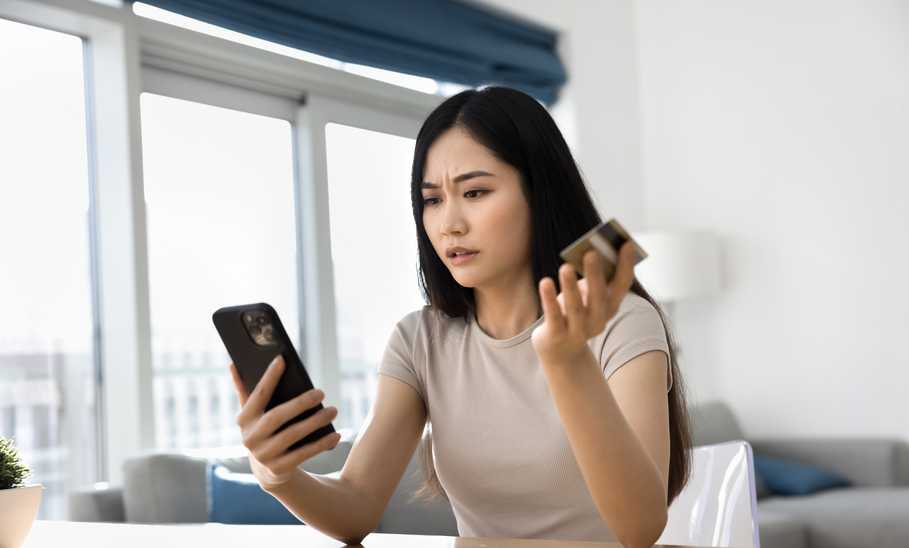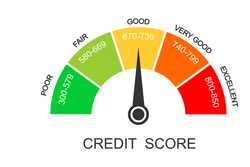12 Venmo Scams to Watch Out For

Our evaluations and opinions are not influenced by our advertising relationships, but we may earn a commission from our partners’ links. This content is created by TIME Stamped, under TIME’s direction and produced in accordance with TIME’s editorial guidelines and overseen by TIME’s editorial staff. Learn more about it.
Mobile payment apps like Venmo, Cash App, and PayPal make it considerably easier to send and receive money on the go without having to carry cash. You can use an app like Venmo to split a dinner bill with a friend, or to pay for something you bought off Facebook Marketplace. From there, mobile payment apps pull funds from a funding source of your choice—whether that's your current balance, a bank account, a debit card or a credit card.
Unfortunately, the ease at which money can move makes these apps a perfect target for scammers who want to get their hands on your funds or account details. This is especially true with Venmo since most money transfers typically cannot be canceled after they are made.This means that, if you discover you're a victim of fraud after you send a criminal money on Venmo, you're usually out of luck.
If you use the Venmo app to send and receive money, you should be aware that most money transfers are irreversible. Because scammers know this, they'll use all kinds of tricks to get you to send them money.
Here is a rundown of the 12 most common Venmo scams to watch out for and avoid:
With this scam, someone reaches out via text message or email saying you won a prize or a cash award. The message also includes a link to sign into your Venmo account to claim your prize, except the link doesn't go to Venmo at all. Instead, it goes to a lookalike page that tricks you into sharing your log-in and password, your banking details, or both.
Venmo says you should never enter your login information anywhere other than the Venmo website or mobile app. The company also says it will never email you from an address that ends in anything other than venmo.com.
The bottom line: Be suspicious of messaging that says you won money but need to log into Venmo to get your prize. Chances are good the message is a full-fledged scam.
You might also get phone calls from someone who says they work for Venmo. A number of different scams may be in play here. A common one is a hacker or thief who is trying to sign into your account with Venmo's multi-factor authentication process. When they're unable to log in, they might call you and say they need the code that was just sent to your phone.
No matter what, you should never provide a code sent to your phone from Venmo to anyone who calls you—even if they say they work for Venmo. Venmo says it never will send a code to your phone without your requesting it, nor will it ever ask to access your mobile device.
Savvy hackers might also turn to text messages to try to get you to reveal sensitive information, such as a multi-factor authentication code or your Venmo password. With this scam, they might try to impersonate Venmo using a fake version of a text message you would normally receive via Venmo's multi-factor authentication process. They might also send you a text message that asks you to log into your account.
If you get a text message that's supposedly from Venmo with a link you should click on, this is also a scam. Venmo says it does not send out text messages with links. Log into your Venmo account only on the mobile app or the Venmo.com website.
This scam can take on many different forms. For example, you might call into a customer service line for a major company that is actually a fake line run by a scammer. They may try to get you to pay for customer service or technical support by sending money to someone via your Venmo account.
This scam usually comes about when thieves get fake customer support lines to show up in Google search results. To avoid becoming a victim, make sure you only call companies using the customer service numbers found on their websites or on your monthly statement.
Venmo scams can also come about when you're selling something to a stranger or trying to. A thief might send you fake screenshots of payment confirmations that show they paid you via Venmo in order to get the item you're selling. Scammers might also say they can only send you payment on Venmo once an item has shipped, which is a flat-out lie.
If someone pays you on Venmo with stolen credit card, debit card, or bank account details, you might also end up on the losing end of the transaction. That's because, according to Venmo, money fraudulently deposited into your account can be withdrawn after the fact.
There are also plenty of scams that can occur when you're trying to buy something from someone through Facebook Marketplace, eBay, or an online listing. For example, someone might try to get you to pay for an item upfront before you meet them or send it to you since they know you can't get your money back after the fact. Scammers might even supply you with fake shipping information or fabricated screenshots to make the transaction seem legitimate.
Venmo also points out that savvy scammers may ask you to not mark the payment as a purchase. This is only for their benefit since items tagged as purchases on your Venmo profile are covered with Venmo purchase protection.
Concert ticket scams are a type of purchase scam. This scam has grown in popularity as the price of concert tickets continues to climb. Essentially, scammers post valuable concert tickets online that can only be transferred digitally. They ask for payments using a mobile payment app like Venmo, PayPal, or Cash App while refusing to meet in person to accept actual cash and make the transfer in person. They may even have screenshots that show the concert tickets in their account, which are almost certainly fake as well.
When you transfer money to one of these thieves, your cash is gone and you don't receive the concert tickets.
Scammers often go to great lengths to get their hands on other people's money, and they may even create new social media accounts or update old ones to impersonate someone you know. From there, they might send money and request it back or make up a story of why they need money quickly.In either scenario, the account is fake and any money you send is gone for good.
Another Venmo scam takes place when someone you don't know sends you money via the app then asks you to send it back as a new payment. It may be hard to pinpoint the exact scam someone is trying here, but Venmo says you should never send money back to someone you don't know. You should contact the Venmo support team instead since they may be able to help you reverse or decline the suspicious payment.
You might also receive a text message or a call from someone who says they can help you make money with Venmo quickly. They might ask you to make a small upfront payment to get a larger amount in return. Or they might try to coerce you into investing into stocks or crypto with the promise of a nice payout.
Of course, you'll never get the money back, much less more than you paid. This is one of those situations that can be avoided by steering clear of money transfers to or from strangers on the app.
It's also common for scammers to use old tools to try out new scams. For example, they might send you a paper check in the mail only to ask you to send the money back using the Venmo app.
They may say the original check payment was a mistake, or they might cook up another story to get you to buy into their plan. Regardless, the check may clear when you cash it with your bank only to bounce later. At that point though, money you sent to the scammer with the Venmo app will be long gone.
Finally, you should know that romance scams of all types have become more and more common over the last decade or more. Even the Federal Bureau of Investigation (FBI) has a page on its website dedicated to these scams. The FBI describes romance scams as when "a criminal adopts a fake online identity to gain a victim’s affection and trust" so they can eventually ask them for money.
Many romance scams begin on dating websites and apps. Sophisticated thieves may spend months building up trust and commitment before they begin asking for cash. They might say they need the money to buy a plane ticket so they can visit you, or to help get them out of a financial jam. In the end though, they typically ask their victims to invest money into crypto or send them cash using Venmo or their bank account.
The Federal Trade Commission (FTC) also says that, on top of asking victims to send money using payment apps like Venmo and Cash App, they might also ask them to wire money through a company like Western Union or MoneyGram or buy gift cards and give them the PIN codes. In any case, you should know these types of requests almost always mean a scam is underway.
Modern thieves are often savvy and creative, which is part of the reason the number of online scams only seems to grow with each passing year. Fortunately, following some basic safety tips can help you avoid any Venmo scam they can dream up.
To avoid losing money through Venmo, Cash App, PayPal, Zelle and other mobile payment apps, you should always do the following:
 |  | |
|---|---|---|
| Monthly fee | $6.67 to $19.99 | $14.99 |
Venmo is definitely safe as a mobile payment app since every transaction is encrypted to keep your personal information secure. Multi-factor authentication adds another layer of security each time a money transfer is initiated.
Users can also secure their account even more with a biometric or PIN-based passcode for their account. The main safety issue with Venmo is that most transactions cannot be reversed. This means scammers who find a way to get you to voluntarily send them money may wind up having the upper hand.
Venmo helps protect against certain scams with its purchase protection program, although this benefit only applies when eligible purchases are made through the app. This protection can help refund your money as a buyer through Venmo if you don't receive an item, it arrives broken, or you don't get what you paid for at all.
On the seller end of the equation, Venmo purchase protection can prevent financial losses that could happen if you sell an item and the buyer claims they didn't receive it.
Venmo scams all work differently, but the vast majority involve someone trying to get you to send a payment or share your password. There are also Venmo scams that aim to get you to share a multi-factor authentication code that was sent to your phone, and others try to get you to access your account on a fake page that steals your login information.
Hackers and thieves will do almost anything to get into your accounts, including any mobile payment apps you have. They might also try to trick you into sending them money, either by impersonating someone you know or saying they work for Venmo.
Other Venmo scams run the gamut from romance scams to overpayment scams and get rich quick opportunities. Unfortunately, scammers are always dreaming up new schemes to get you to part with your money, so there are likely ones we don't even know about yet.
At the end of the day, it's up to you to know to whom you're transferring money and why, and to avoid all the different ways criminals might try to access your account. While Venmo can be a useful tool for sending and receiving money with people you know, remember that most transactions cannot be reversed.
According to Venmo, it's impossible to cancel a payment to an existing Venmo account. However, some payments can be reversed if the recipient gives Venmo support their permission, their account is in good standing, and the funds are still available.
Venmo purchase protection can refund money for some items bought through the app provided they were tagged as purchases upfront. In this scenario, a refund can be initiated if the item didn't arrive, it showed up broken, or was not delivered as expected.
There is no need to share your email with someone who wants to pay you with Venmo. Instead, they can send you money with your Venmo username, QR code, or phone number.
The information presented here is created by TIME Stamped and overseen by TIME editorial staff. To learn more, see our About Us page.



